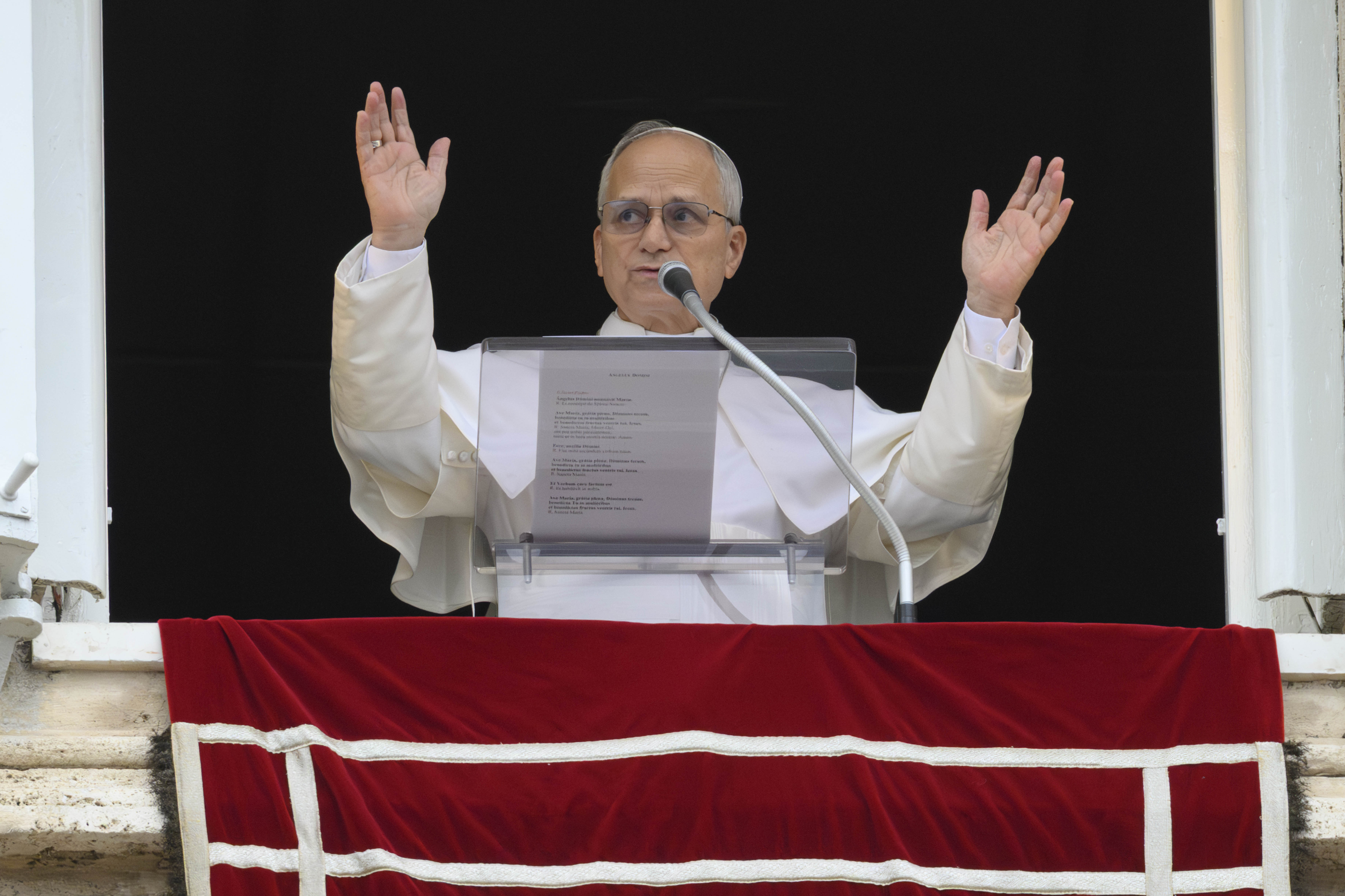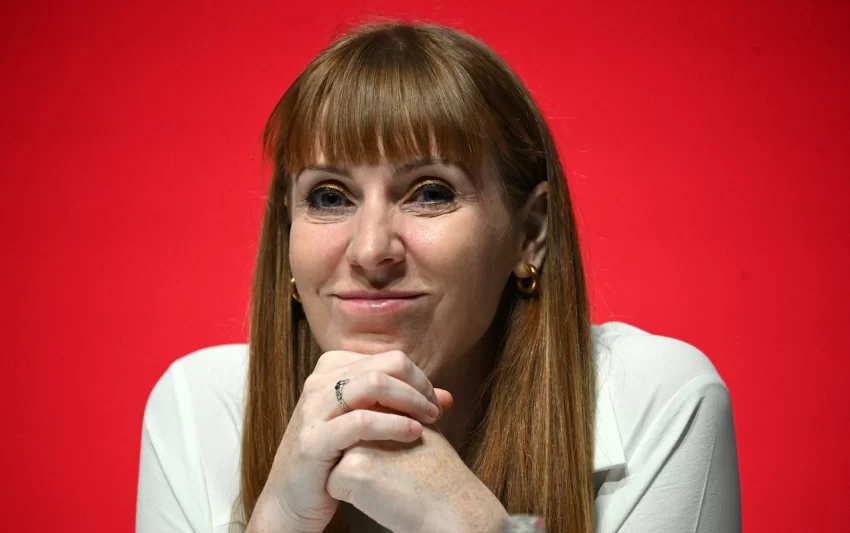Britain is about to start fighting over fracking again
LONDON — Fracking is back.
Three years after a botched attempt to unleash the controversial industry helped bring down Liz Truss, it has a new fan: Nigel Farage.
Farage’s surging Reform UK says fracking will secure U.K. energy supplies and reduce bills. Opponents say that’s nonsense — and that the drilling ruins the countryside and exposes locals to the risk of mini earthquakes.
Brace for another round of Britain’s shale gas forever war.
Farage — whose party consistently leads national opinion polls — is committed to lifting a de facto ban on fracking, shorthand for hydraulic fracturing, which involves drilling horizontal, underground wells, then forcing water, sand and chemicals into them at high pressure to break up the rock and release the gas inside.
“Abso-bloody-lutely,” he told The Spectator magazine in June, when asked if fracking would be on the agenda should Reform win the general election.
Richard Tice, Farage’s deputy and Reform’s energy spokesperson, claims fracking could deliver “hundreds of billions of pounds” for the U.K. economy. The Labour government’s decision not to pursue it is “bordering on criminal financial negligence,” Tice told POLITICO.
Reform’s top brass are not the first politicians to see pound signs in shale rock. Conservative Prime Ministers David Cameron and Liz Truss both looked at boosting domestic fracking in a bid to ape the United States’ shale gas boom, which helped transform the country’s energy fortunes in the 2010s from a net importer of gas to a net exporter for the first time since the 1950s.
But in the U.K., the idea was beaten back each time by fierce local opposition over the risk to landscapes, water supply and — most notoriously — of earthquakes caused by the required underground extraction.
Now Reform is readying for the same fight.
Fracking and the right
Farage’s opponents — including politicians bruised by their own run-in with the fraught politics of fracking — question whether the new generation of shale enthusiasts have the stomach.
“Fracking is one of those great rallying cries of the right,” said Kwasi Kwarteng, who was an energy minister when Boris Johnson introduced the first fracking ban in 2019 and then chancellor when Truss briefly lifted it in 2022. “It feeds into the narrative of ‘broken Britain’ where we’re not bold enough, we’re not exploiting our resources enough, we’re too bound by red tape.
“But explaining that to people in the places where fracking will take place is a very different proposition.”

When energy firm Cuadrilla set up the U.K.’s only previously active fracking site in Lancashire, the area was shaken by minor earthquakes in 2019. Locals said the tremors shook wardrobes and beds. The industry has always maintained — and still does — that any seismic activity would be negligible.
“The likes of Jacob [Rees-Mogg] and Liz [Truss] would say ‘Let’s just frack!’ But politically it was very difficult to land,” Kwarteng said.
When Truss tried to lift the ban, opposition MPs forced a vote in the House of Commons. The government won — but the chaos that evening shattered any remaining confidence among her MPs. Plagued by an embarrassing mini-budget and unable to shake off the fracking saga, she resigned the next day.
Her successor, Rishi Sunak, reinstated the moratorium on fracking, leaning heavily on findings from the British Geological Survey that offered no guarantee it would not bring earthquakes, nor how big any might be.
This ain’t Texas
For Kwarteng, there is a world of difference between fracking in the U.S. and the situation in the U.K.
“The population density of a place like Lancashire is 400 times that of Wyoming or 40 times that of Texas … Given how small Britain is, you can’t get away with it that easily. I’m not saying it’s impossible. But there are a lot of political hoops you’ll have to jump through.”
Arriving in office in 2019, Johnson took one look at marginal parliamentary seats in Lancashire and other fracking zones and decided it was politically wise to step away. A month ahead of the December 2019 general election, he imposed the first moratorium, citing an Oil and Gas Authority report which said it wasn’t possible to accurately predict the likelihood or size of earthquakes linked to fracking.
“There was no coincidence with that,” said Kwarteng. “This is a very controversial issue. Particularly people in Lancashire were very exercised … We put a moratorium on it, and that went a very long way to reassure people ahead of that election.”
Voters have now elected Reform to lead Lancashire County Council.
But the populist party will reach the same conclusion as Johnson when they wake up to the extent of local opposition, Kwarteng predicted.

“I think they’re very pragmatic. Their mission will be to try and get as many seats as possible and in that context they may well tread more warily as the election comes into view.”
Boris ‘bottled it’
Tice, unsurprisingly, views the Tory legacy very differently.
“They bottled it,” he said. “The thing about leadership is it requires courage and conviction. We didn’t have that with a Boris-led Tory government that was obsessed with net stupid zero.”
Recent commercial announcements have only made Reform more excited about fracking.
American-backed energy firm Egdon Resources recently claimed new analysis showed gas reserves under Lincolnshire and surrounding areas could produce 87 percent of the U.K.’s demand and add £140 billion to the U.K. economy. (The estimates are based on a Deloitte report that the company would not share with POLITICO.)
Andrea Jenkyns, the former Conservative minister now elected as Reform’s regional mayor of Greater Lincolnshire, has met with the company and is bullish about the prospects.
Jenkyns wants “to make sure we have the skills in the local economy to ensure that — if we get a Reform government in 2029 — then we’ve got the workforce across the county to meet [energy] needs through fracking,” she said.
Jenkyns, who recently said she does not believe climate change is happening, added that she wants the U.K. to be “energy self-sufficient.”
To some, it all sounds wearily familiar.
Michael Bradshaw, professor of global energy at the Warwick Business School, who has spent years monitoring the development of U.K. shale gas policies, said Reform’s rhetoric today reminded him of David Cameron’s pledge in 2014 to go “all out for shale.”
“In the end, shale turned out to be a bust.” Bradshaw said. “There may be gas in the rocks, but the challenges of extracting it are many.”
Ira Joseph, senior research associate at the Center on Global Energy Policy at New York’s Columbia University, concurred. “U.K shale is not like the Permian Basin [in Texas]. … Everything I’ve seen [suggests] it’s definitely more faulted, more complex.”

More importantly, in Joseph’s estimation, British shale just doesn’t look a good commercial bet for any major energy companies.
“The amount of bang for buck on shale in the U.K. seems pretty limited at the moment, particularly in a market where gas demand is falling not rising,” he said. “There are other, more attractive plays potentially out there than [fracking] in a country where gas demand is falling and the cost would be relatively high.”
In the country
Energy Secretary Ed Miliband appears to be relishing the prospect of a fight over fracking.
“We intend to ban fracking for good,” said a Labour spokesperson. “If Reform want to impose fracking on our countryside, we will take them on.”
Farage’s party will also need to take on campaigners who have fought this battle before — and won.
Before Johnson and then Rishi Sunak imposed fracking moratoria in 2019 and again in 2022, one group spearheading opposition was countryside charity the CPRE.
The group remains “completely opposed” to fracking, said its campaign lead, Jackie Copley — and served notice to Reform that they won’t be changing tack.
“We believe it to be extremely harmful to our environment, in terms of atmospheric greenhouse gases, seismic events and via the trucking of contaminated water,” she said.
“I think Richard Tice is onto the wrong track,” she added, “and CPRE would be highlighting all the problems every step along the way. It’s not something we’d envisage for iconic British countryside.”
Tice is having none of it. Fracking’s impact on the countryside would be minimal, he insisted, with industrial sites no bigger than football fields.
It was “not the middle-class people, the members of CPRE” who suffered from the fracking ban but “the poorest, the least well-off, in places like Skegness [his constituency]” left with higher energy bills, he added.
Reform will be betting that years of painfully high energy prices will encourage voters to give fracking a chance.

There are some signs they may be onto something. A new poll by Merlin Strategy, which asked voters whether they supported fracking based on what they know about it, found 41 percent support versus 25 percent opposed.
But other polls, including the government’s own public attitudes tracker from spring 2024, showed 40 percent opposed and just 18 percent supportive. A YouGov tracker from April this year, which explicitly mentions the risk of minor earthquakes, finds 51 percent against and 24 percent supportive.
Pollster Scarlett Maguire, founder of Merlin Strategy, said: “With higher energy bills and a recent energy crisis, Brits are looking for an abundance of energy supply here in the U.K., and are becoming more open minded as to what that could look like.”
But her company’s poll also found ongoing concerns about fracking. “The public are worried about its safety, and further messaging on its risk could cause support to fall,” Maguire said.
Give it a go
Even Reform’s chief attack dog admitted the plans could yet come unstuck, no matter the billions he thinks fracking might unlock.
“The way through [local opposition] is to have a couple of test wells for a couple [of] years,” Tice said, “using different extraction techniques, under independent supervision and monitoring, so that one can show to people it can be done safely. I think that is the way through it.
“And, cards on the table — if you do a couple of test wells and, in a sense, for whatever reason, it doesn’t work out, then my hands are up, and I’ll say: ‘It was the right strategy to try, it doesn’t work, but at least we’ve tried and we know.’ That’s my position.”
If Reform can find a way to win the political battles, it will also have to show it was right about bringing down bills for hard-pressed voters. And the impact of even extensive fracking on energy bills is disputed.
The U.K.’s gas price is largely determined by Europe-wide supply and demand, as well as the global market for liquefied natural gas shipped across oceans.
In theory, significantly higher U.K. domestic production could lower wholesale gas prices enough to shift household energy bills, said one energy industry expert, granted anonymity to discuss a politically sensitive topic.
But even in this “most boosterish but still-credible scenario,” they said, it would “knock gas bills down by maybe a fiver or a tenner per year at peak.”
It is more likely to raise government revenue than cut bills, the industry expert added. And then only “if it works at scale … which is uncertain.”




















:quality(85):upscale()/2023/09/18/918/n/1922398/a1136b676508baddc752f5.20098216_.jpg)
:quality(85):upscale()/2025/10/09/670/n/1922283/00b944c868e7cf4f7b79b3.95741067_.jpg)
:quality(85):upscale()/2025/10/15/765/n/1922398/29c37a6e68efd84bb02f35.49541188_.jpg)
:quality(85):upscale()/2025/09/09/891/n/1922283/7222624268c08ccba1c9a3.01436482_.png)
















